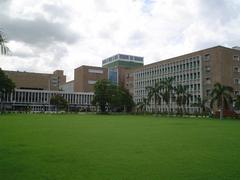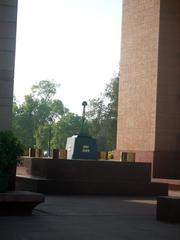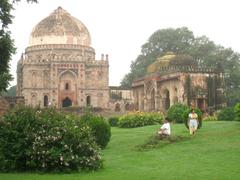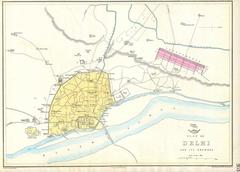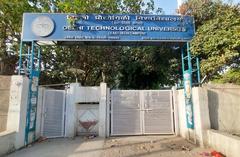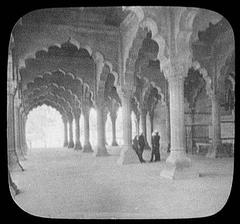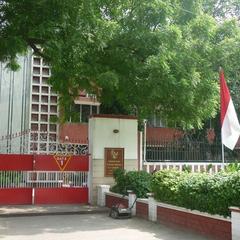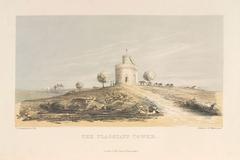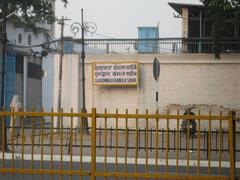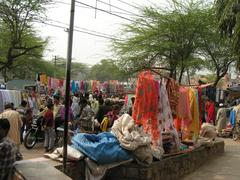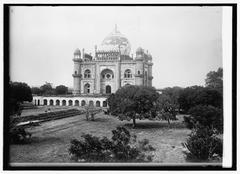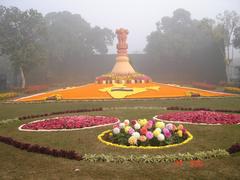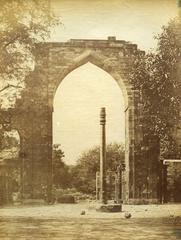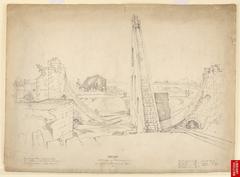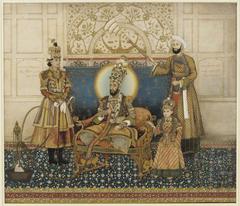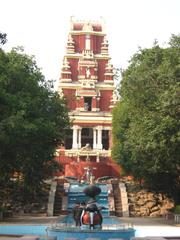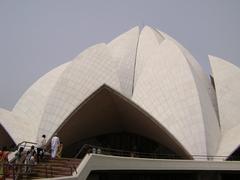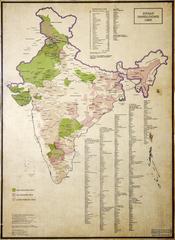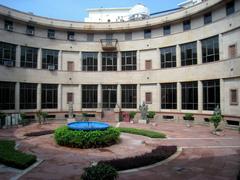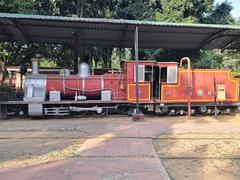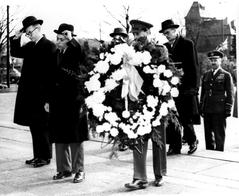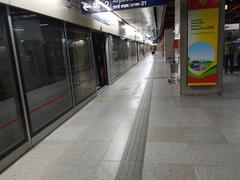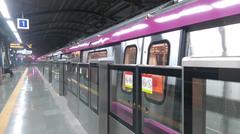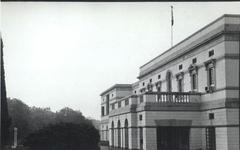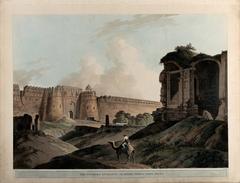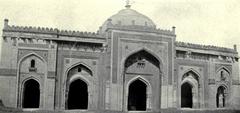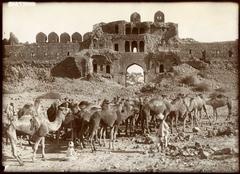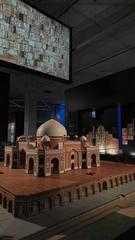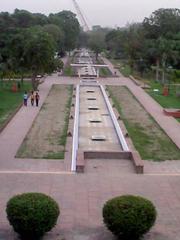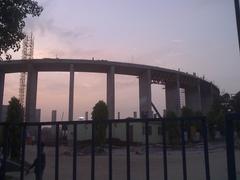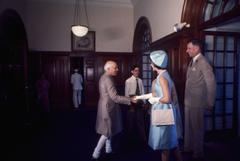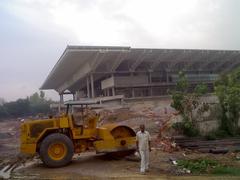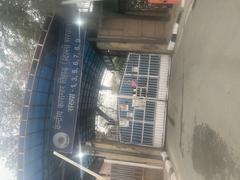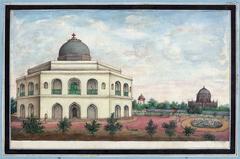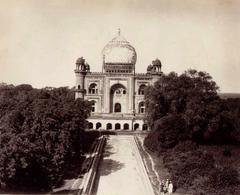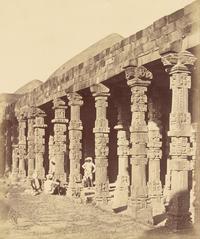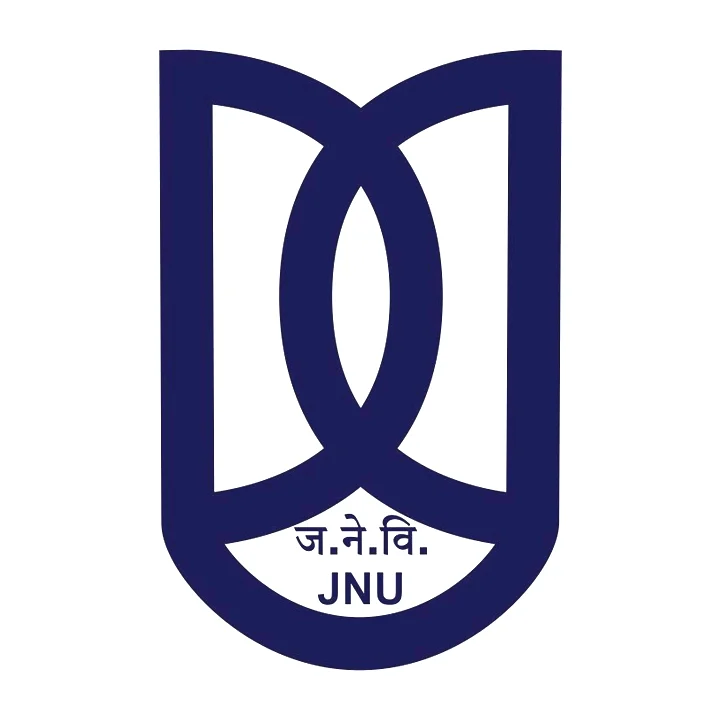
Jawaharlal Nehru University New Delhi Visiting Guide: Tickets, Hours, and Tips
Date: 14/06/2025
Introduction
Jawaharlal Nehru University (JNU), located in South Delhi, is among India’s most esteemed academic institutions. Established in 1969, JNU is celebrated for its forward-thinking academic programs, political vibrancy, and lush, expansive campus. Designed by CP Kukreja Architects, the university seamlessly integrates modernist architecture with the natural splendor of the Aravalli hills, covering 1,019 acres (JNU at a Glance; Archinect). JNU’s campus is a destination in itself, offering visitors a unique mix of academic heritage, social activism, and natural beauty.
This comprehensive guide outlines everything you need to know before visiting JNU: history, campus highlights, practical travel information, accessibility, and nearby attractions. Whether you are a prospective student, a history buff, or simply exploring South Delhi, JNU promises an enriching experience (Wikipedia; The Conversation).
Contents
- Overview of JNU: History, Architecture, and Culture
- Visiting Hours and Entry
- How to Reach JNU
- Campus Highlights: Academic, Residential, and Natural Attractions
- Guided Tours, Events, and Accessibility
- Campus Life and Culture
- Notable Events and Festivals
- Nearby Places of Interest
- Travel Tips and Frequently Asked Questions (FAQ)
- Summary and Recommendations
- Sources and Further Reading
JNU at a Glance: History, Architecture, and Culture
Founded as a tribute to India’s first Prime Minister, Jawaharlal Nehru, JNU was conceived to foster national integration, academic innovation, and social justice. From its inception, the university adopted progressive academic structures emphasizing interdisciplinary research and critical inquiry (JNU at a Glance; The Conversation).
The campus layout, designed after winning a national architectural competition, reflects a philosophy of harmony between human development and the environment (Archinect). JNU’s academic blocks, central library, and residential hostels—each named after Indian rivers—are interspersed with forests and green spaces, making the campus a haven for biodiversity and tranquility.
Practical Visitor Information
Visiting Hours and Entry
- General Hours: 9:00 AM – 5:00 PM, Monday to Saturday. Sunday and public holidays: closed or restricted access. Always verify timings on the official JNU website before your visit.
- Entry: Free for all visitors; a valid photo ID is required for registration at the main gate.
- Guided Tours: Occasionally available for academic or cultural groups. Advance arrangements can be made via the visitor center or university website.
Travel and Access
- By Metro: Munirka (Magenta Line) and R.K. Puram stations are closest; both require a short auto-rickshaw or taxi ride to the campus.
- By Bus: Multiple Delhi Transport Corporation (DTC) routes service the area.
- By Car/Taxi: Easily accessible via Outer Ring Road and Sri Aurobindo Marg, but parking is limited.
- Accessibility: The campus provides ramps, wheelchair-friendly paths, and assistance for those with disabilities. Contact the visitor center in advance for specific requirements.
Campus Highlights
Academic and Administrative Buildings
- Central Library: A nine-storey hub with over a million volumes and extensive digital resources, ideal for research and study (Edarabia).
- Academic Schools: Notably, the School of International Studies, School of Social Sciences, and School of Environmental Sciences, all designed to foster interdisciplinary learning (Collegedunia).
- Administrative Block: Central offices and administrative services, easily accessible for visitors.
Residential Facilities
- Hostels: Over 15 hostels such as Ganga, Kaveri, Jhelum, and the recently opened Barak Hostel for North-East students (Northeast Today). Each provides affordable accommodation and communal dining areas.
- Faculty/Staff Housing: Integrated within the campus, supporting a close-knit academic community.
Dining and Social Spaces
- Canteens and Dhaba: The popular Ganga Dhaba and Library Canteen serve a variety of affordable meals and are key student gathering spots (Collegedunia).
Natural Attractions and Green Spaces
- JNU is renowned for dense greenery, biodiversity, and walking trails. The campus is a biodiversity hotspot, with sightings of peacocks, deer, and over 200 bird species (Edarabia). Sustainability initiatives include rainwater harvesting and solar energy projects (Collegedekho).
Campus Life and Culture
Diversity and Internationalization
JNU boasts a highly diverse student body, including representatives from all Indian states and over 50 countries. The Foreign Students’ Association (FSA) organizes orientations and cultural exchanges to foster inclusivity (targetstudy.com; delhiinformation.in).
Vibrant Student Activism
JNU is nationally recognized for its student activism, open debates, and vibrant political life. The Jawaharlal Nehru University Students’ Union (JNUSU) channels student voices on social, academic, and political matters (reddit.com).
Cultural and Sports Activities
Multiple cultural clubs and annual festivals—such as Tastopia (food festival), Madhurima (music/dance), and Ahimsa Day (blood donation)—offer immersive experiences (delhiinformation.in). Sports facilities include cricket and football fields, tennis courts, a gymnasium, and recreational trails (targetstudy.com).
Notable Campus Events and Festivals
- Chaat Sammelan: Student debates and cultural showcases.
- Holi Celebrations: Noted for their inclusivity and color on Jhelum Hostel lawns.
- Academic Conferences: Frequent national and international seminars (JNU Events).
Nearby Attractions
- Qutub Minar: Iconic UNESCO World Heritage Site, approx. 10 km from JNU.
- Hauz Khas Village: Lively area with historical ruins, cafes, and galleries, 5 km away.
- Lotus Temple: Modern architectural marvel, 8 km from campus.
Visitor Tips
- Best Visiting Period: February–March for spring blossoms and pleasant weather.
- Required Documents: Carry a valid photo ID for registration.
- Dress Code: Modest attire is recommended.
- Photography: Permitted in open spaces; restricted in academic buildings.
- Accessibility: Contact the visitor center in advance if you require specific accommodations.
Frequently Asked Questions (FAQ)
Q: Is there an entry fee to visit JNU?
A: No, entry is free for all visitors.
Q: Are guided tours available?
A: Tours are not regularly scheduled but can be arranged by prior request.
Q: Can I visit on weekends?
A: Campus access may be restricted on Sundays and public holidays; check the website for current policies.
Q: Are there dining options on campus?
A: Yes, several canteens and cafes are open to visitors.
Q: Is JNU accessible for people with disabilities?
A: Yes, accessible pathways and facilities are available.
Summary and Visitor Recommendations
A visit to JNU provides a multidimensional experience, blending academic prestige, architectural interest, social engagement, and natural beauty. The campus is open and welcoming, with robust facilities for visitors and a vibrant event calendar (Collegedunia; TargetStudy). Its proximity to Delhi’s cultural landmarks makes it an ideal addition to any South Delhi itinerary. For the latest information, refer to the official JNU website or use the Audiala app for real-time updates.
Sources and Further Reading
- Jawaharlal Nehru University, 2024, Official Website
- Jawaharlal Nehru University - Wikipedia, 2024
- Jawaharlal Nehru University at a Glance, 2024
- The Conversation: Jawaharlal Nehru University, 2024
- Archinect: JNU Campus Design, 2024
- Edarabia: Jawaharlal Nehru University Overview, 2024
- Collegedunia: JNU Campus and Facilities, 2024
- TargetStudy: JNU Campus Culture, 2024
- Northeast Today: Barak Hostel and Cultural Institute, 2024
- Collegedekho: JNU Campus
For personalized guides and up-to-date information about Delhi’s cultural and educational sites, download the Audiala app.


